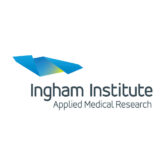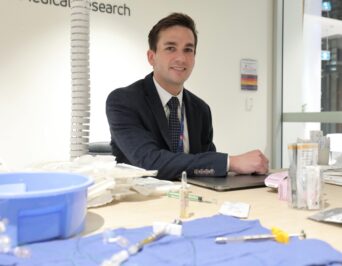Description
This study aims to identify predictive biomarkers, including STING, with a focus on DNA damage repair pathways and the genomic signature of gastric and oesophageal cancers. This will help determine which patients would respond to different treatments.
In retrospectively examining resected specimens, we aim to develop a better understanding of certain biomarkers and the impact they had on the survival of the patient. We’ll then take potential biomarkers into a prospective study of patients embarking on systemic treatment for advanced disease, and validate the role these biomarkers have in selecting patients who respond to chemotherapy and/or immunotherapy.
Research Impact
DNA damage repair and the immune system are novel methods we’re using to target cancer. Traditional anticancer treatments such as chemotherapy and radiotherapy induce DNA damage to destroy cancer cells. We have also been able to harness our immune system to attack cancer cells that have been able to evade detection from it until the advent of immunotherapy.
This may also open up new therapies which enhance STING levels that can work hand in hand with our existing treatment to better improve outcomes in patients with stomach and oesophagus cancers.
Benefits
Through this study, we’re aiming to determine what impact STING levels have on the ability of cancer to respond to treatment, how this impacts the immune response to cancer and ultimately the ability to survive. The goal is to be able to personalise treatment to suit the individual and their type of cancer.
Collaborators & Partners
- Dr Robert Yoon
- A/Prof Weng Ng
- A/Prof Tara Roberts
- Prof Wei Chua
- Dr Alexander James
- Prof C Soon Lee
Funders
- Australasian Gastrointestinal Trials Group (AGITG)
- Vitocco Charitable Foundation
- Western Sydney University





